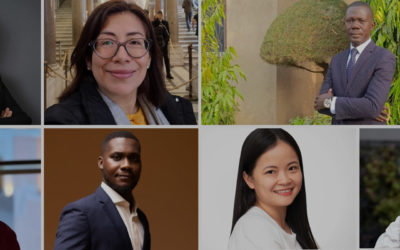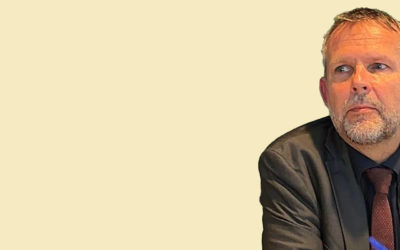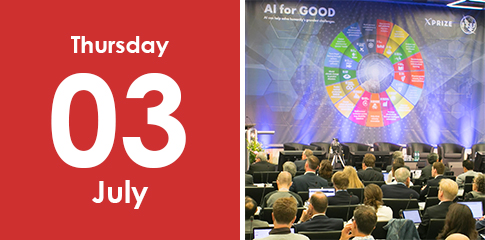A little excursion into motivation, inertia, feel-good solutions and the need to finally get educated on what we put into our mouths.
Introduction
Greetings fellow Graduate Institute Community and friends from across the globe. I hope that this short article finds you well and in good spirits despite the wicked times we live in.
The recent Netflix release of the much appraised and much critiqued Seaspiracy had me walk in mental and emotional circles for days, and I relish the opportunity to finally discuss its layered messages. For those of you that haven’t seen it, I highly recommend giving it a shot. Whether you are interested in sustainable seafood or are simply curious about the nature of campaigning, it was a most educational watch for me.
You see, its message was my message for the longest time (I haven’t eaten seafood in 10 years): “Just stop eating seafood and we’ll all be fine.”
I celebrated it being broadcast across the globe, friends and family calling me to say how touched they were and how it rattled them out of their slumber. From an advocacy standpoint, Seaspiracy was very smart. But something kept irking me, and it wasn’t my science brain dry-heaving at the imbalance between holistic scientific review and dramatic effect. But let’s start at the beginning.
Sustainable Consumption
Figuring out how to feed oneself in a truly sustainable fashion is a task of overwhelming complexity. It is a question that feels local, intimate, one that lives around your kitchen table at supper. Yet, it is a task that lives within a global economy, a context of global consequences, in a world of global supply chains. It is this complexity that can cause inertia in even the most motivated among us. The sheer scale of the task prevents us from taking even the smallest step towards more sustainable consumption patterns. Is local beef a superior choice over an avocado from half-way across the globe? How was the avocado farmed? Did the beef receive feed from rainforest soy monoculture? The list of questions goes on, but you catch my drift: this thing is complex.
I will spare you the standard exposé of sinister world-ending figures around over-population, dwindling natural resources, global warming and political mismanagement in bringing about a truly Green Economy. We’ve all seen them before. I’ll just sneak one in as we’ll talk about Seaspiracy in more detail in a second:
In European waters alone, which are possibly amongst the most heavily regulated and policed waters in the world, we still have 30 out of 70 fish stocks fished above Maximum Sustainable Yield (MSY), according to a 2019 European Commission report on the effectiveness of the Common Fisheries Policy (CFP). Fleet-overcapacity, especially on industrial scale, is a major contributor to this issue, and yet the European Parliament in February of 2019, has voted to reintroduce subsidies for fleet renewal and modernisation under the European Maritime, Fisheries and Aquaculture Fund (EMFAF) to the height of EUR 6 billion annually between 2021 and 2027. “Renewal and modernisation” is code for more ships, better fuel economies and longer time spent at sea, just fyi.
Why Seaspiracy’s message is as genius as it is dangerous
Seaspiracy’s message is simple, a message that can be implemented by everyone with access to diverse food supply at their next trip to the aisles: sustainable management of the seas is impossible given its complexity, so our only solution is to stop eating fish. Genius in its simplicity, and conveyed in a way that resonates with the hearts of the many.
It makes one feel good, makes us dream of oceans teaming with life, oceans boosting our planet’s resilience to what other onslaughts we visit upon it. And I think Seaspiracy did something critical: it brought the plight of the oceans to households that otherwise would never think about it. It moved people. And I am grateful. But if we imagine everyone following this call to action, we find ourselves in dangerous waters:
- Enter our snippet about fisheries subsidies. These subsidies are chiefly directed the lobbyist groups of large industry conglomerates. As such, their distribution tends to be skewed towards large industrial operations with no cultural ties to the coastal zones they operate in. If demand in seafood would suddenly dwindle across the board, it would be the small scale, artisanal fisheries vanishing first, generally considered to be more sustainable in nature. The argument could be made to instead vote with one’s wallet, and support those arms of the sector that are known for their responsible fishing practices. The idea of snapping whole industries out of existence is appealing, but inevitably a fantasy. Which leads us to the next point.
- Local circumstance should be taken into consideration when composing one’s diet and aiming for maximum sustainability. Here is a little story for you: A vegan friend of mine committed the environmental sin of flying to the Seychelles. There, they quickly realised that the Seychelles had, in essence, no agricultural produce aside from Vanilla and about 30kg of onions that the islands could produce annually. So they opted to base their main nutrient intake on the locally fished seafood. To their great shock, their more carnivorously inclined travel companions preferred the Italian pizza with artichoke hearts from France and asparagus bits from Germany. The irony of it all is quite striking.
So, what now?
There is no one size fits all solution to sustainable consumption. Seafood has the potential to be a sensationally sustainable resource if managed correctly. No feed, no fertiliser, no deforestation. If we were to eliminate it from our plates completely, we would soon run out of land to cultivate sufficient amounts of agricultural produce. As consumers, we must educate ourselves, demand transparency from our retailers, and as good as they feel, move beyond placative calls for black and white behaviour. Dr. Richard Oppenlander coined it wonderfully: sustainability is not some mythical entity, it is always to be seen as concept ‘relative’ to its context.
Naturally the topic is far more complex than a 900-odd word article can encompass. If you have made it to the end of this article, I would like to say thank you for your time and attention and would love to continue the discussion in the comments below!
Tom Zamzow, INP’20
Founder of Zamzow Consulting
www.tomzamzow.com









Thank you for expressing balance in your assessment. People often don’t understand nuance. They want “only this” and “never that” when it comes to environmentalism and diet. But the equation is so complex!
Thank you so much for chiming in Justin, and for introducing the word balance to the conversation. It got me thinking of another balancing act we had to do if we want to turn this ship around. Sustainability for some is a lifestyle choice, a philosophy, something pure, something that lives off of the emotion it creates. Something that can easily feel tarnished by strategy and tactics to rally people behind it, there is looming sense of ‘manipulation’ surrounding it. But there are detractors to the Green Economy, and they most certainly do not shy away from things like lobby and government relations. So I think it’s time that we brush up our tools as well, and learn to play in the theatres where decisions are made.
Thanks to people like you, we are becoming less estranged with words such as sustainable consumption. The integration of these new thoughts is slow but it is there. I am becoming more and more curious about how and how long new ideas take to sink in populations’thoughts. So many thanks for your work.